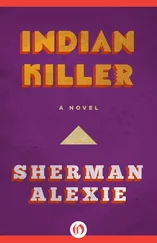“Spence and Eddie—”
“No,” my father interrupted. “This is not about them. This is about you.”
“Okay,” I said. “I’m really confused here, Dad. I’m trying to do the right thing. And I need you to help me. Tell me what the right thing is. Tell me what I’m supposed to do.”
And so my father told me what he had learned from confidential sources. The gay men had reported the assault but, obviously shocked and confused, had provided conflicting descriptions of Spence, Eddie, and Bernard and no description of me other than “white male, twenties to thirties, five-eight to six feet, one-eighty to two hundred pounds.” In other words, I could have been almost any Caucasian guy in Seattle. The victims didn’t catch the license plate of the suspects’ car and could only describe it as a “dark four-door.” There were no other witnesses to the assault as of yet. Most curious, the victims disagreed on whether or not the perpetrators brandished guns.
“What do the police think?” I asked.
“They think the victims are hiding something,” my father said.
“They’re just scared and freaked out.”
“No. I agree with the police. I think they’re hiding something.”
“No, they’re not hiding anything, Dad. They’re just confused. I’d be confused if somebody attacked me like that.”
“No, they’re hiding the fact that they started the fight and they don’t want the police to know it.”
I was shocked. Was this really my father or his lying twin? Was I talking to my father or his murderous brother?
“Listen,” he said. “I don’t think the police really have anything to go on. And I don’t think they’re going to pursue this much further. But we’re going to monitor the investigation very closely. And we’re going to be preemptive if we sense any real danger.”
“What are you talking about? Are you going to hurt them?”
More enraged than ever before, my father grabbed me by the shirt. “Don’t you say such things. Don’t you dare! This is the United States of America, not some third world shit heap! I am not in the business of intimidation or violence. I am not in the business of murder.”
It was true. My father believed in life, the sacred spark of humans, more strongly than any other man I’d ever known. As a Republican, he was predictably antiabortion, but he was also against capital punishment. His famous speech: “It is the business of man to judge and punish on this mortal Earth; but it is the business of God to give and take away life. I believe that abortion is a great evil, but it is just as evil to abandon any child to the vagaries of economics. I believe it is evil to murder another human being, but it is just as evil for a government to kill its citizens based on the vagaries of justice.”
Yes, this was the man I had accused of conspiracy. I had insulted my father. I’d questioned his honor. I’d deemed him capable of murder. He was right to shake me.
“I’m sorry,” I said. “I’m sorry. I’m just confused. Help me. Please, Daddy, help me. I love you. Please, please help me.”
And so he held me while I wept.
“I love you, son,” he said. “But you have to listen to me. You have to understand. I know that you were wrong to do what you did. It was a mortal sin. You sinned against God, against those men, and against me. And you should pay for those sins.”
My good father wanted me to be a good man.
“But it’s not that easy,” my father said. “If you turn yourself in to the police, I will also pay for your sins. And I know I should pay for your sins because I am your father, and I have obviously failed to raise you well. But I will also pay for your sins as a U.S. senator, so our state and country will also pay for them. A scandal like this will ruin my career. It will ruin our party. And it will ruin our country. And though I know I will be judged harshly by God, I can’t let you tell the truth.”
My father wanted me to lie. No, he was forcing me to lie.
“William, Willy,” he said. “If we begin to suspect that you might be implicated in this, we’re going to go on the offensive. We’re going to kill their reputations.”
If it is true that children pay for the sins of their fathers, is it also true that fathers pay for the sins of their children?
Three days later, I returned to my condominium in downtown Seattle and found a message waiting on my voice mail.
“Hey, William, it’s — um, me, Jeremy. You really need to call me.”
And so I called Jeremy and agreed to meet him at his house in Magnolia, an upper-class neighborhood of Seattle. It was a small but lovely house, painted blue and chocolate.
I rang the doorbell. Jeremy answered. His face and nose were swollen purple, yellow, and black; his eyes were bloodshot and tear-filled.
“It was you,” I said, suddenly caught in an inferno of shame.
“Of course it was me. Get your ass in here.”
Inside, we sat in his study, a modernist room decorated with beautiful and useless furniture. What good is a filing cabinet that can only hold an inch of paperwork?
“I’m so sorry, Jeremy,” I said. “I didn’t know it was you.”
“Oh, so I’m supposed to be happy about that? Things would be okay if you’d beaten the shit out of a fag you didn’t know?”
“That’s not what I meant.”
“Okay, then, what did you mean?”
“I was wrong to do what I did. Completely wrong.”
“Yes, you were,” he said.
He was smiling. I recognized that smile. Jeremy was giving me shit. Was he going to torture me before he killed me?
“Why didn’t you tell the police it was me?” I asked.
“Because the police don’t give a shit about fags.”
“But we assaulted you. We could have killed you.”
“Doubtful. James had already kicked the crap out of your friends. And he would have kicked the crap out of you and the guy with the tire iron. Let’s just call it a split decision.”
“You didn’t tell James it was me, did you?”
“No, of course not. I told the police a completely different story than James did. And I was the one with the broken face, so they believed me.”
“But what about James? What’s he going to do?”
“Oh, who cares? I barely knew him.”
“But it was a hate crime.”
“Aren’t all crimes, by definition, hate crimes? I mean, people don’t rob banks because they love tellers.”
“I don’t understand you. Why haven’t you gone public with this? You could destroy my father. And me.”
Jeremy sighed.
“Oh, William,” he said. “You’re still such an adolescent. And so romantic. I haven’t turned you in because I’m a Republican, a good one, and I think your father is the finest senator we’ve ever had. I used to think he was a closet Democrat. But he’s become something special. This kind of shit would completely fuck his chance at the presidency.”
Jesus, was this guy more a son to my father than I was?
“And, okay, maybe I’m a romantic, too,” Jeremy said. “I didn’t turn you in because we were best friends and because I still consider you my best friend.”
“But my father hates gay people.”
“It’s more complicated than that.”
And so Jeremy explained to me that his sexual preference had nothing to do with his political beliefs.
“Hey,” he said. “I don’t expect to be judged negatively for my fuck buddies. But I don’t want to be judged positively, either. It’s just sex. It’s not like it’s some specialized skill or something. Hell, right now, in this house, one hundred thousand bugs are fucking away. In this city, millions of bugs are fucking at this very moment. And, hey, probably ten thousand humans — and registered voters — are fucking somewhere in this city. Four or five of them might even be married.”
Читать дальше












